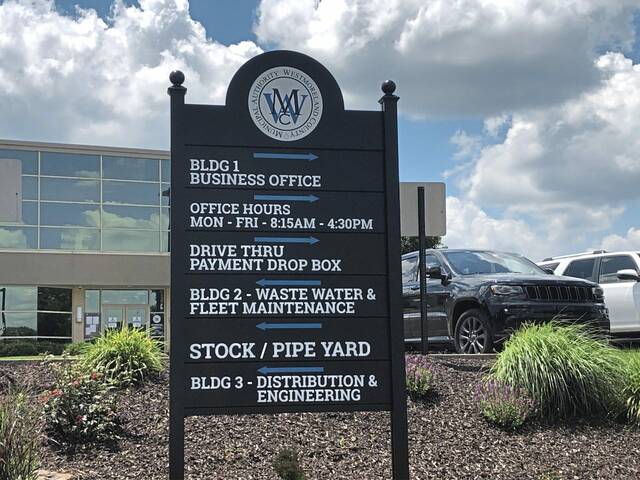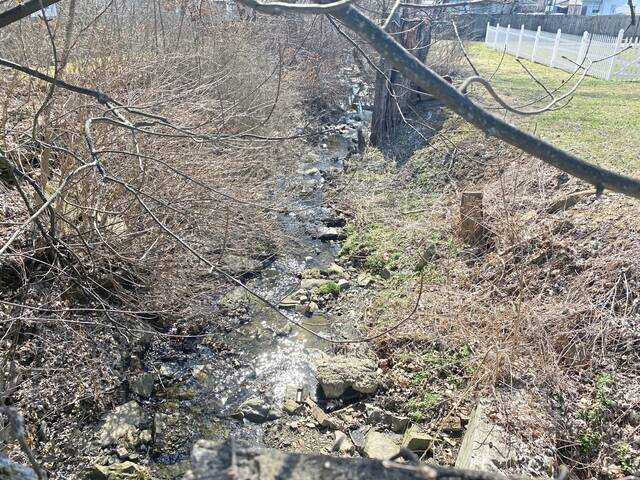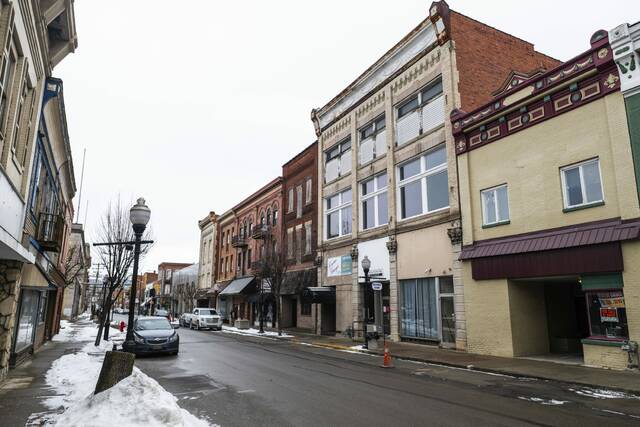Sewers are the new growth industry for the Municipal Authority of Westmoreland County.
The agency last week completed the purchase of a municipal sewer system that services Scottdale, Everson, Upper Tyrone and part of East Huntingdon, and officials said the utility, whose primary business during its first 60 years has been water, will look to continue to expand its reach and service.
“I’ve always thought that if your business is not growing, it’s dying,” said Municipal Authority of Westmoreland County board Chairman Randy Roadman. “We were losing a half a million dollars a year to (water) conservation, so we had to find a way to increase our revenues. Our thought was that expansion was a way to raise revenues.”
Roadman has headed the board since 2013. During his tenure, MAWC has completed the purchases of nine water or sewer authorities, adding to its service territory that includes more than 122,000 water customers in Westmoreland, Allegheny, Armstrong, Fayette and Indiana counties. The authority also has about 32,000 sewer customers.
It lists about 375 employees.
Last week’s $17.5 million purchase of the Westmoreland Fayette Municipal Sewage Authority is the agency’s most recent transaction, and officials said it will continue to explore deals to enlarge its business.
Until 2001, MAWC was strictly a water company when it paid $125,000 to purchase a small sewer system that served about 400 customers in Avonmore.
Since then, the authority has bought a dozen more water and sewer systems in the region.
“MAWC’s vision is to be the regional provider for water and wastewater. We feel we have the sources to manage those facilities,” said authority business manager Brian Hohman. “Our goal is to be regional and for local systems to still have the aspect of regional control.”
Expansion so far has been a more passive exercise for the authority. Officials said MAWC has made purchase offers only when asked to do so by local governments, including a request from officials in Allegheny Township, who earlier this month rejected the authority’s $3.45 million purchase proposal for its sewer system.
For MAWC, water expansion is less likely. The authority already controls most water distribution systems in the county. The only remaining municipality-owned authorities are in Latrobe, Derry, Donegal, Ligonier Township and New Kensington.
A study released this year by the American Water Works Association recommends regionalization.
“Regionalization could allow for the integration of regional infrastructure and technology and create opportunities for strategic partnerships within and beyond the water community, in particular, agriculture, manufacturing and land-use stakeholders within and across watersheds,” the study says. “Approaching water governance from a watershed rather than geo-political perspective will encourage collaboration to sustain and make efficient use of resources, while encouraging new and innovative water management strategies.”
Dave Montz, executive director of 3 Rivers Wet Weather, an Allegheny County-based environmental nonprofit that has been advocating for consolidation of municipal sewer systems in the Pittsburgh region, said regionalization can improve efficiency and cost savings for local governments.
Montz’s organization has lobbied for Allegheny County’s 83 municipalities to consolidate local sewer services with the Allegheny County Sanitary Authority (ALCOSAN).
“Sewage that goes through the lines doesn’t know a boundary. Managing treatment plants and systems has become more complex because of regulations and manpower issues. There are more demands, and it can be easier if one entity is overseeing the entire system,” Montz said. “But that is up to the municipalities.”
Local officials said a regional approach to water and sewer service could prevent national and international companies from coming into the region and buying local systems.
That was part of the calculus used by Hempfield when it sold its sewer system that services more than 14,000 residents to MAWC as part of an $88 million deal in 2016. The Hempfield authority turned over its $32 million in debt to MAWC, and, after receiving a $5 million lump sum payment, the township is scheduled to receive annual $1.5 million allocations from the county authority through 2036.
“The deal means we don’t have to worry about the debt. We were not looking to sell it to a private company. It should be controlled by a local governing body,” said Hempfield Supervisor Doug Weimer. “We felt that because there was municipal entity that could do this, we no longer needed to be in that business. It’s been a real positive move for Hempfield Township.”
Roadman said MAWC will continue to expand.
“Our ultimate goal is to continue to grow,” Roadman said. “We’d probably be further along if it wasn’t for the pandemic.”








